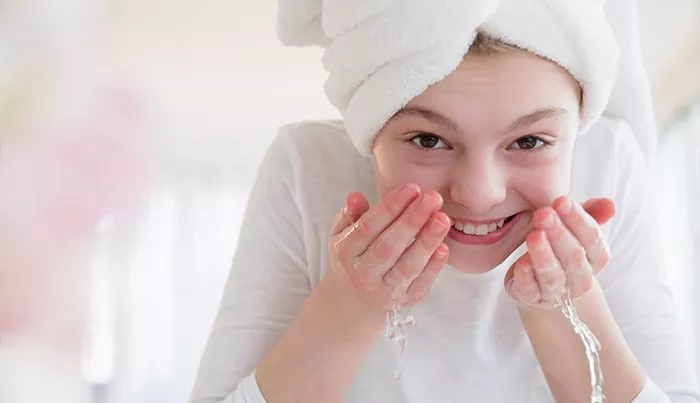Skin care products are designed to nourish, protect, and enhance the appearance of your skin. However, there are certain situations where discontinuing their use is necessary. Understanding when to stop using specific products can prevent further skin damage and ensure overall skin health. This article explores 6 key situations in which you should stop using skin care products.
1. Allergic Reactions
Signs of Allergic Reactions
Allergic reactions to skin care products can occur due to various ingredients. Common signs include redness, swelling, itching, and hives. In severe cases, blisters and difficulty breathing may occur. If you experience any of these symptoms, it’s crucial to stop using the product immediately.
Identifying Allergens
To identify the allergen, review the product’s ingredient list. Common allergens include fragrances, preservatives, and certain natural extracts. Conduct a patch test before using new products to avoid allergic reactions in the future.
Seeking Medical Advice
If the allergic reaction is severe or persists, consult a dermatologist. They can prescribe antihistamines or topical steroids to alleviate symptoms and suggest alternative products that are less likely to cause reactions.
2. Persistent Irritation
Types of Irritation
Skin irritation can manifest as dryness, flaking, burning sensations, and rashes. Persistent irritation indicates that the product may be too harsh for your skin type or that you’re using it too frequently.
Evaluating Product Ingredients
Ingredients like alcohol, acids, and retinoids can cause irritation, especially if overused. Sensitive skin types should avoid high concentrations of these ingredients. Instead, look for gentler alternatives such as hyaluronic acid, ceramides, and soothing botanicals.
Adjusting Your Routine
If you notice persistent irritation, reduce the frequency of product use or switch to milder formulations. Sometimes, layering multiple products can cause irritation due to ingredient interactions. Simplify your routine to identify the culprit.
See Also: 7 Steps to Teach You Good Skin Care Habits
3. Breakouts and Acne
Understanding Breakouts
Breakouts and acne can occur if a product clogs pores or contains ingredients that are comedogenic. If you notice an increase in breakouts after introducing a new product, it may not be suitable for your skin.
Non-Comedogenic Products
Opt for non-comedogenic products, which are formulated to not block pores. Ingredients like mineral oil, lanolin, and certain silicones are known to be comedogenic for some individuals.
Consulting a Dermatologist
If breakouts persist, consult a dermatologist. They can provide targeted treatments to address acne and recommend skin care products that won’t exacerbate the condition.
4. Skin Changes and Conditions
Pregnancy and Hormonal Changes
During pregnancy, hormonal changes can make skin more sensitive and prone to reactions. Certain ingredients like retinoids and salicylic acid should be avoided during pregnancy. If you experience skin changes, consult your doctor for safe alternatives.
Medical Conditions
Conditions like eczema, rosacea, and psoriasis require specialized care. Some skin care products can aggravate these conditions. If you have a medical skin condition, use products recommended by your dermatologist.
Aging Skin
As skin ages, it becomes thinner and more delicate. Products that were effective in your youth may become too harsh. Opt for gentler, hydrating formulations and avoid products with high concentrations of exfoliants.
5. Over-Exfoliation
Signs of Over-Exfoliation
Over-exfoliation can lead to red, raw, and inflamed skin. Signs include excessive dryness, sensitivity, and peeling. If you experience these symptoms, stop using exfoliating products immediately.
Balancing Exfoliation
Exfoliation is essential for removing dead skin cells, but it should be balanced. For most skin types, exfoliating 1-3 times per week is sufficient. Use chemical exfoliants like AHAs and BHAs sparingly, and avoid combining them with physical exfoliants.
Restoring Skin Barrier
If you’ve over-exfoliated, focus on repairing your skin barrier. Use gentle, hydrating products and avoid active ingredients until your skin has healed. Look for products containing ceramides, peptides, and hyaluronic acid to support barrier function.
6. Expired Products
Checking Expiration Dates
Using expired skin care products can lead to ineffective results and potential skin irritation. Always check the expiration date before using a product. If a product smells off or has changed in color or texture, it’s best to discard it.
Understanding Product Stability
Some ingredients are more prone to degradation over time. Vitamin C, for example, can oxidize and become less effective. Store products in a cool, dark place to extend their shelf life and efficacy.
Regular Inventory Check
Regularly review your skin care collection and discard any expired products. This practice ensures that you’re using fresh, effective products that won’t harm your skin.
Conclusion
Recognizing when to stop using skin care products is crucial for maintaining healthy skin. Allergic reactions, persistent irritation, breakouts, skin changes, over-exfoliation, and expired products are all valid reasons to discontinue use. By being mindful of these situations and adjusting your routine accordingly, you can ensure your skin remains healthy and radiant. If in doubt, always seek advice from a dermatologist to guide your skin care choices and address any concerns.
Related topics:

